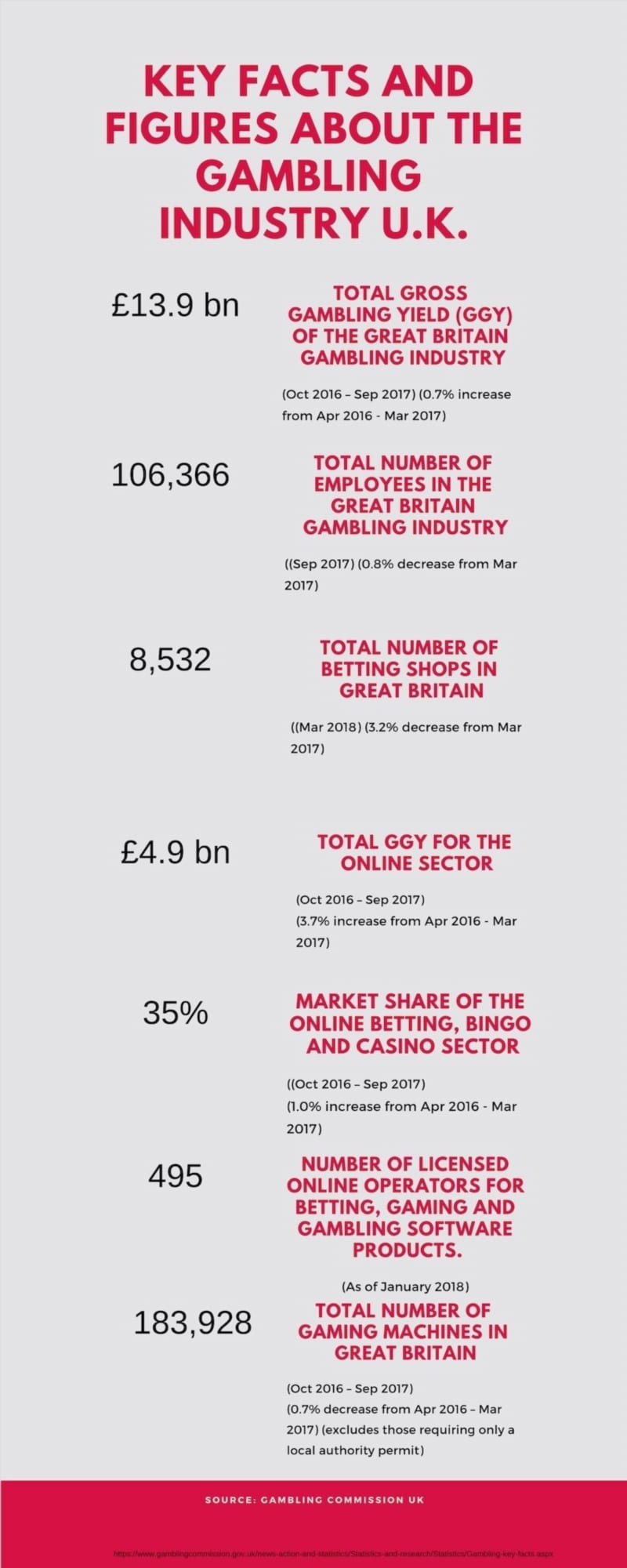The Intricacies of Gambling Tax

Gambling Tax?
It’s a question that many avid gamblers and occasional players alike often ponder: “How does gambling tax work?” The ins and outs of taxes related to gambling can sometimes seem intricate, but understanding this complex matter can save one a great deal of hassle. Let’s dive deep into the fascinating world of gambling tax.
The Basics of Gambling Tax
To get started, one needs to understand the fundamental aspects of how the gambling tax system operates.
Why is there a Tax on Gambling?
Much like earning from a day job, winnings from gambling are seen as a form of income. Governments, in their wisdom, believe that since it adds to an individual’s wealth, it ought to be taxed. Revenue from this tax often goes back into the community in various forms, be it public services or infrastructure projects.
Who is Liable?
Anyone who secures a win is theoretically liable for tax. However, in practice, the specifics can be more nuanced, depending largely on local tax regulations and the amount won.
Different Tax Regimes Around the World
There’s no one-size-fits-all approach to gambling tax, with regulations varying from one country to another.
-
The United States: In the US, all gambling winnings, whether from a casino, a lottery, or online gambling, are considered taxable income. A W-2G form is typically provided for such incomes, and one has to report the total winnings in their tax return.
-
The United Kingdom: Contrary to the US, in the UK, gambling winnings aren’t subject to any tax. Instead, the tax is levied on the gambling operators themselves.
-
Australia: Down under, gambling is a beloved pastime. The government doesn’t tax winnings, but like the UK, the operators are the ones who face taxation.
Deductions? Oh, Yes!
Now, here’s a silver lining. In some jurisdictions, while you must declare your winnings, you can also declare your losses. These losses can offset the winnings to some extent, reducing the overall taxable amount. It’s akin to saying, “Hey, I did win, but look at what I lost as well!”
Online Gambling: A Modern Challenge

The advent of online gambling platforms has added a layer of complexity to the whole tax affair.
Jurisdiction Issues: With online platforms, one might be playing in a virtual casino based halfway across the world. This geographical mismatch can lead to confusion regarding which country’s tax laws to follow.
Payment Methods: Digital payments, cryptocurrencies, and e-wallets are commonly used in online gambling. Tracking and reporting such transactions can be tricky.
Tips for Being Tax Compliant
Alright, so taxes can be a tad confusing, but let’s keep our heads in the game. Here are some pointers to ensure you’re on the right side of the law:
-
Keep Records: Whether you win or lose, always keep detailed records. Receipts, tickets, online transaction records – stash them all. This can be invaluable during tax time.
-
Consult a Professional: When in doubt, always turn to a tax professional or an accountant familiar with gambling tax laws.
-
Stay Updated: Tax laws aren’t set in stone. They can change. Keep an ear to the ground for any changes in legislation that might affect your gambling tax liabilities.
The Tangled Web of Gambling Tax
Country |
Tax on Winnings |
Tax on Operators |
|---|---|---|
USA |
Yes |
Varies |
UK |
No |
Yes |
Australia |
No |
Yes |
The world of gambling tax is intricate, with its own set of challenges and nuances. But as the saying goes, “When life throws you lemons (or tax forms), make lemonade (or get a good accountant)!” Always remember, playing by the rules, especially the tax ones, is the best bet!
How Much of Gambling Winnings are Taxed?
So, you’ve hit the jackpot and are feeling on cloud nine! But wait a sec, before you go on that spending spree, there’s a little matter to address – just how much of those gambling winnings will Uncle Sam take a slice of? Let’s pull back the curtain and delve into the nitty-gritty of it all.
The US Perspective:
Ah, the land of the free! But when it comes to your gambling winnings, not so fast. In the US, the federal tax rate on gambling winnings is a flat 24%. That’s right, for every hundred bucks you win, $24 is going straight to the taxman. Ouch!
However, there’s a twist in the tale. While the federal tax is set, individual states can, and often do, levy their own taxes on gambling winnings. So, if you’re living in the city that never sleeps, New York, you could be looking at an additional state tax!
Around the Globe:
While we’ve got our hands full with the US tax scene, let’s take a whirlwind tour around the world. The picture can vary wildly:
-
Canada: Good news, eh? Canada doesn’t tax gambling winnings unless you’re a professional gambler. Casual players can pocket the full amount.
-
Germany: The Germans have a similar approach. No tax on winnings for the average Joe. However, lottery winnings can sometimes be an exception.
The Catch of Deductions:
Here’s where it gets juicy. In some places, like the US, while you’re reporting those big wins, you can also throw in your losses. But, and there’s always a but, these can only be claimed as an itemized deduction. And, just between you and me, it’s a bit of a tightrope walk. You can’t claim more in losses than you’ve won. A fair game, if you ask me.
Tax Rates on Gambling Winnings Snapshot
Country |
Tax Rate |
Notes |
|---|---|---|
USA |
24% (Federal) |
State taxes may apply |
Canada |
0% |
Only professional gamblers are taxed |
Germany |
0% |
Lottery winnings might be an exception |
In a nutshell, while gambling can give you a rush like no other, it’s essential to keep your feet on the ground, especially when it comes to taxes. Because as they say, there are only two certainties in life: death and taxes. And, my friend, while lady luck might be fickle, the taxman certainly isn’t!
How is Gambling Taxed?
So, you’re on a winning streak, and the chips are piling high. But before you go all in, let’s take a pit stop and address the elephant in the room: how the heck is gambling taxed? It’s not just about how much, but the hows and whys that make the world of gambling tax a roller coaster ride.
Method to the Madness:
Gambling tax isn’t just a ‘take a chunk and be done with it’ affair. There’s a method to this madness, and depending on where you are, the rules of the game can change.
In the US, for instance, it’s not just about the flat tax. The type of game you’re playing, the amount you’ve won, and where you’re playing it all come into the equation. Slot wins, poker tournaments, horse races, you name it – they’ve all got their own tax quirks.
Report, Report, Report!
Remember that old adage, “What happens in Vegas, stays in Vegas?” Well, not when it comes to taxes. Whether you win a dollar or a million, you’ve got to report it. And while that might seem like a buzzkill, trust me, you don’t want the IRS breathing down your neck.
Now, for those wins that make your heart skip a beat (read: big bucks), casinos will often issue a W-2G form, making the reporting process a tad smoother. But, and here’s the kicker, they might even withhold taxes upfront. So, if you’re dreaming of those dollar signs, brace yourself for a little upfront deduction.
Global Tax Tango:
If you thought gambling tax was a tangled web in the US, wait till you hear about the rest of the world:
-
Spain: Olé! In Spain, while lottery winnings were once tax-free, now there’s a catch. Anything above €40,000, and you’re looking at a tax.
-
Sweden: The Swedes play it cool. Lottery wins are tax-free, but if you’re a professional gambler, you’re on the hook.
Tax Mechanisms on Gambling Wins
Country |
Tax Mechanism |
Notes |
|---|---|---|
USA |
W-2G form for big wins |
Taxes might be withheld upfront |
Spain |
Tiered tax system |
€40,000 threshold for lottery winnings |
Sweden |
Specific to profession |
Pro gamblers pay, lottery winners don’t |
All in all, while the thrill of gambling can make you feel on top of the world, it’s essential to have a lay of the land when it comes to taxes. Because, as the saying goes, “You’ve got to play your cards right!” And in the tax world, that’s truer than ever. So, next time you’re feeling lucky, spare a thought for the tax implications, and you’ll be good to go!
Is Gambling Money Taxable Income?
So, you’ve thrown the dice, played your cards right, and lo and behold, you’re swimming in a sea of winnings! But, before you jump headfirst into this newfound wealth, there’s a burning question lurking in the shadows: Is this money even taxable? Let’s unravel this yarn, step by step, and see where it leads us.
The Short and Sweet:
In many countries, the quick and dirty answer is a resounding yes! But, as with everything tax-related, the devil’s in the details. The manner and extent to which your gambling money is taxed can vary as wildly as the odds in a game of roulette.
Uncle Sam’s Stance:
In the US, the taxman’s got an eye on every dime you win. Regardless of the amount, gambling winnings are considered taxable income. Now, while the average Joe might think, “But it’s just luck!”—the IRS begs to differ. They’ve got a simple motto: “If you’ve won it, we want a piece of it.”
However, and this is where it gets interesting, not all wins are treated equally. If Lady Luck blesses you with a significant win at the casino, you might be handed a W-2G form, detailing the amount and the tax already withheld. It’s the IRS’s way of saying, “Thanks for playing!”
The Global Playground:
Beyond the American shores, the treatment of gambling money as taxable income varies:
-
UK: The Brits have a rather laid-back approach. For the average player, gambling winnings aren’t seen as taxable income. But don’t be fooled; the taxman’s still in the game, only this time he’s knocking on the casino’s door, not yours.
-
France: Viva la France, where the rules are a mixed bag. While lottery and sports betting wins escape the tax net, poker and other card game wins don’t share the same luck.
Offsetting the Blow:
If the thought of parting with a chunk of your winnings is making your head spin, there’s a silver lining. In some regions, you can offset your wins with your losses. Essentially, it’s a way of telling the taxman, “Hey, it wasn’t all rainbows and butterflies!” But remember, while this might soften the blow, it’s no free pass. Deductions come with their own set of hoops to jump through.
Tax Treatment of Gambling Wins Across the Board
Country |
Tax on Winnings |
Notes |
|---|---|---|
USA |
Yes |
Wins might come with W-2G form |
UK |
No |
Tax levied on operators |
France |
Mixed |
Lotteries are free; card games aren’t |
To cap it off, while the thrill of gambling is undeniable, it’s wise to keep one foot grounded when it comes to the tax implications. Remember, while the world of gambling might be unpredictable, the tax realm rarely is. So, whether you’re hitting the slots or trying your hand at poker, always keep an eye out for that tax curveball!
Does the IRS Care About Gambling?

Ah, the IRS. Mention those three little letters, and people tend to break out in a cold sweat. Now, mix in the world of gambling, and things get even spicier. Ever wondered if the IRS gives two hoots about your jackpot wins or poker nights? Let’s dive deep and see how much the taxman is peeking over your shoulder when you’re rolling the dice.
The Eagle’s Eye:
Does the IRS care about gambling? In short, you bet they do! The tax agency has its fingers in many pies, and gambling is a pie they’re particularly fond of. While you might think of your casino escapades as fun and games, the IRS views it as potential taxable income. Talk about raining on your parade!
The Paper Trail:
Here’s where things get a tad tricky. Win a substantial amount, and the casino might just hand over a W-2G form. It’s like a little “love letter” from the gambling world to the IRS, letting them know about your windfall. And trust me, once the IRS gets wind of it, they’ll be waiting with open arms (and open coffers).
But I’m a Casual Gambler!
Now, if you’re thinking, “I’m just a small fish in a big pond; surely the IRS has bigger fish to fry?”—think again. Whether you’re raking in the big bucks or just pocketing some spare change, the IRS expects you to report every penny. It’s a bit like high school; even if you think the teacher isn’t watching, they probably are.
Losses in the Mix:
Here’s a silver lining amidst the tax clouds. If you’ve suffered losses, the IRS isn’t entirely heartless. They’ll let you deduct those losses to some extent, but there’s a catch—you can’t claim more in losses than you’ve won. Seems like the house always wins, even in the tax realm.
Gambling and the IRS: Quick Glance
Aspect |
IRS Stance |
|---|---|
Big Wins |
Likely to trigger W-2G forms |
Small Wins |
Still need to be reported |
Losses |
Deductible, but not beyond total winnings |
To wrap it up, while gambling can be a whirlwind of emotions, when it comes to the IRS, it’s all business. They’re keenly interested in your gambling affairs, and it’s always better to play it safe than sorry. After all, when playing with the taxman, it’s a whole different ball game!